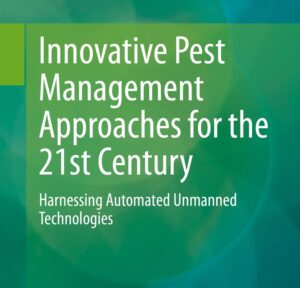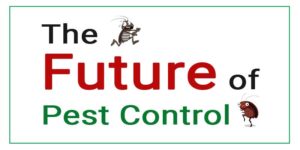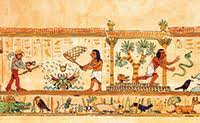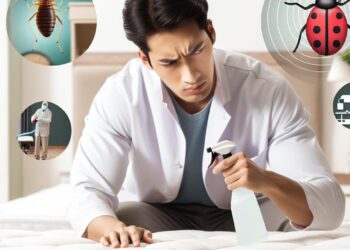Introduction:
Pest control has been an integral part of human history since ancient times. The need to protect crops, livestock, and human settlements from pests has led to the development of numerous methods and techniques for pest control. In this article, we will take a journey through history to explore the evolution of pest control, from ancient and traditional methods to modern innovations.
Ancient Pest Control Methods:
Ancient civilizations, such as the Egyptians and Greeks, used various methods to control pests. The Egyptians used cats to control rodents, while the Greeks used predatory birds to control pests on their farms. In China, farmers used ducks to control pests in rice fields, a practice that is still used today.

Traditional Pest Control Methods:
Traditional methods of pest control involve the use of natural substances such as plants, minerals, and animals. For example, Native Americans used cedarwood to repel insects, while the ancient Romans used sulfur to control pests. In India, neem oil has been used for centuries as a natural insecticide.
Modern Developments in Pest Control:
In the 20th century, advances in technology led to the development of synthetic pesticides. DDT, a powerful insecticide, was widely used to control pests in the mid-20th century. However, concerns about its environmental impact led to its ban in many countries. Today, pest control companies use a wide range of modern techniques, such as integrated pest management (IPM), which combines different methods to control pests while minimizing the use of pesticides.

Innovative Pest Control Techniques:
In recent years, scientists have developed innovative pest control techniques, such as genetic modification of pests to reduce their reproductive capacity or ability to transmit diseases. Biological control, which involves the use of natural enemies such as predators, parasites, and pathogens, is also gaining popularity as a sustainable pest control method.
Pest control has come a long way since ancient times, with the development of numerous methods and techniques over the years. While traditional and modern methods have their own advantages and disadvantages, it is clear that the future of pest control lies in sustainable and eco-friendly methods that minimize the use of pesticides. As technology and scientific knowledge continue to advance, we can expect to see even more innovative pest control techniques in the years to come.
Here are some additional details about the history of pest control:
Ancient Pest Control Methods:
In addition to the methods mentioned in the introduction, other ancient civilizations also developed their own pest control techniques. For example, the Babylonians used sulfur compounds to control pests, and the ancient Chinese used arsenic compounds to control insects. In ancient Rome, farmers used ferrets to control rodents, and in medieval Europe, cats were kept in granaries to control rodents.
Traditional Pest Control Methods:
Traditional pest control methods have been used for centuries and are still used today in many parts of the world. Some examples of traditional methods include using natural predators such as ladybugs to control aphids, using diatomaceous earth to control crawling insects, and using sticky traps to catch flying insects. Traditional methods are often considered safer and more environmentally friendly than synthetic pesticides.

Modern Developments in Pest Control:
The development of synthetic pesticides in the 20th century revolutionized pest control. However, the widespread use of these chemicals led to concerns about their impact on human health and the environment. In response, integrated pest management (IPM) was developed in the 1970s as a more sustainable approach to pest control. IPM involves using a combination of methods such as biological control, cultural practices, and chemical treatments to control pests while minimizing the use of pesticides.
Innovative Pest Control Techniques:
In recent years, scientists have developed new and innovative pest control techniques. One such technique is the use of genetic modification to control pests. For example, scientists have developed genetically modified mosquitoes that are unable to transmit diseases such as malaria and dengue fever. Another technique is the use of pheromone traps, which use synthetic copies of insect sex pheromones to lure insects into traps.
Biological control is another innovative pest control technique that involves the use of natural enemies to control pests. For example, farmers can release ladybugs to control aphids, or they can release parasitic wasps to control caterpillars. Biological control is often considered more environmentally friendly than chemical control methods.

Pest control has undergone significant changes over the centuries, from ancient methods such as using cats and Sulphur to modern innovations such as genetic modification and biological control. While the use of synthetic pesticides revolutionized pest control in the 20th century, concerns about their impact on human health and the environment have led to the development of more sustainable approaches such as IPM and biological control. As technology and scientific knowledge continue to advance, we can expect to see even more innovative pest control techniques in the future.
The Evolution of Pest Control:
As human populations have grown and expanded over time, the need to control pests has become increasingly important. Pests can cause a wide range of problems, from damaging crops and livestock to spreading diseases and causing damage to buildings and infrastructure.
In ancient times, people used a variety of methods to control pests. These methods were often based on observations of natural processes and the use of natural substances. For example, the ancient Egyptians used cats to control rodents, while the Greeks used predatory birds to control pests in their fields.
As civilizations developed, so too did the methods used to control pests. In medieval Europe, cats were kept in granaries to control rodents, while in ancient Rome, farmers used ferrets to control pests. In the 16th century, the first chemical pesticide, a compound made from mercury and arsenic, was developed in Europe.

The development of synthetic pesticides in the 20th century revolutionized pest control. Pesticides such as DDT were highly effective at controlling pests and were widely used around the world. However, concerns about the impact of these chemicals on human health and the environment led to their regulation and in some cases, their banning. Today, pest control companies use a wide range of modern techniques, such as integrated pest management (IPM), which combines different methods to control pests while minimizing the use of pesticides.
In recent years, scientists have developed innovative pest control techniques. Genetic modification, for example, has been used to create genetically modified mosquitoes that are unable to transmit diseases such as malaria and dengue fever. Biological control, which involves the use of natural enemies such as predators, parasites, and pathogens, is also gaining popularity as a sustainable pest control method.
The Future of Pest Control:

As technology and scientific knowledge continue to advance, we can expect to see even more innovative pest control techniques in the future. One promising area of research is the use of robotics and automation to control pests. For example, researchers are developing robots that can detect and remove weeds from crops, reducing the need for chemical herbicides.
Another area of innovation is the use of artificial intelligence (AI) to predict and prevent pest outbreaks. By analyzing data on weather, crop growth, and pest populations, AI algorithms can help farmers and pest control professionals make more informed decisions about when and how to apply pest control measures.
Conclusion:
Pest control has come a long way since ancient times, from using cats and birds to control pests to the development of synthetic pesticides and modern techniques such as IPM and biological control. As concerns about the environmental impact of pesticides continue to grow, scientists and pest control professionals are developing new and innovative methods to control pests that are safer and more sustainable. The future of pest control is likely to be focused on using technology and scientific knowledge to develop targeted and effective pest control methods that minimize the use of pesticides and promote sustainable agriculture.

















